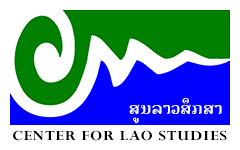
Journal of Lao Studies (JLS)
December 2024 Volume 8 Issue 1 Now Available!
Including: Call for Article Submissions; International Conference on Lao Studies Announcement; Note from the JLS Editor, Dr. Mike Rattanasengchanh
pp. i-vii
RESEARCH ESSAYS
RYAN WOLFSON-FORD
pp. 1-21
A Rare Stone Creation from Laos: The Luang Prabang 'Philosopher'
LIA GENOVESE and VIENGKEO SOUKSAVATDY
pp. 22-40
Statue and Mine: Chao Anouvong, Chinese Capital, and Rescaling the Lao Nation
AL LIM
pp. 41-71
Laos in the East German Berliner Zeitung, 1947-1990: Socialist news between Second and Third World during the Cold War
Peter Gutter
pp. 72-120
The Lao American Archive Project: Opening up Lao American History
IAN G. BAIRD and AKARATH SOUKHAPHON
pp. 121-142
BOOK REVIEW
High, Holly, ed. Stone Masters: Power Encounters in Mainland Southeast Asia. NUS Press, Singapore: 2022
LIA GENOVESE
pp. 143-147





